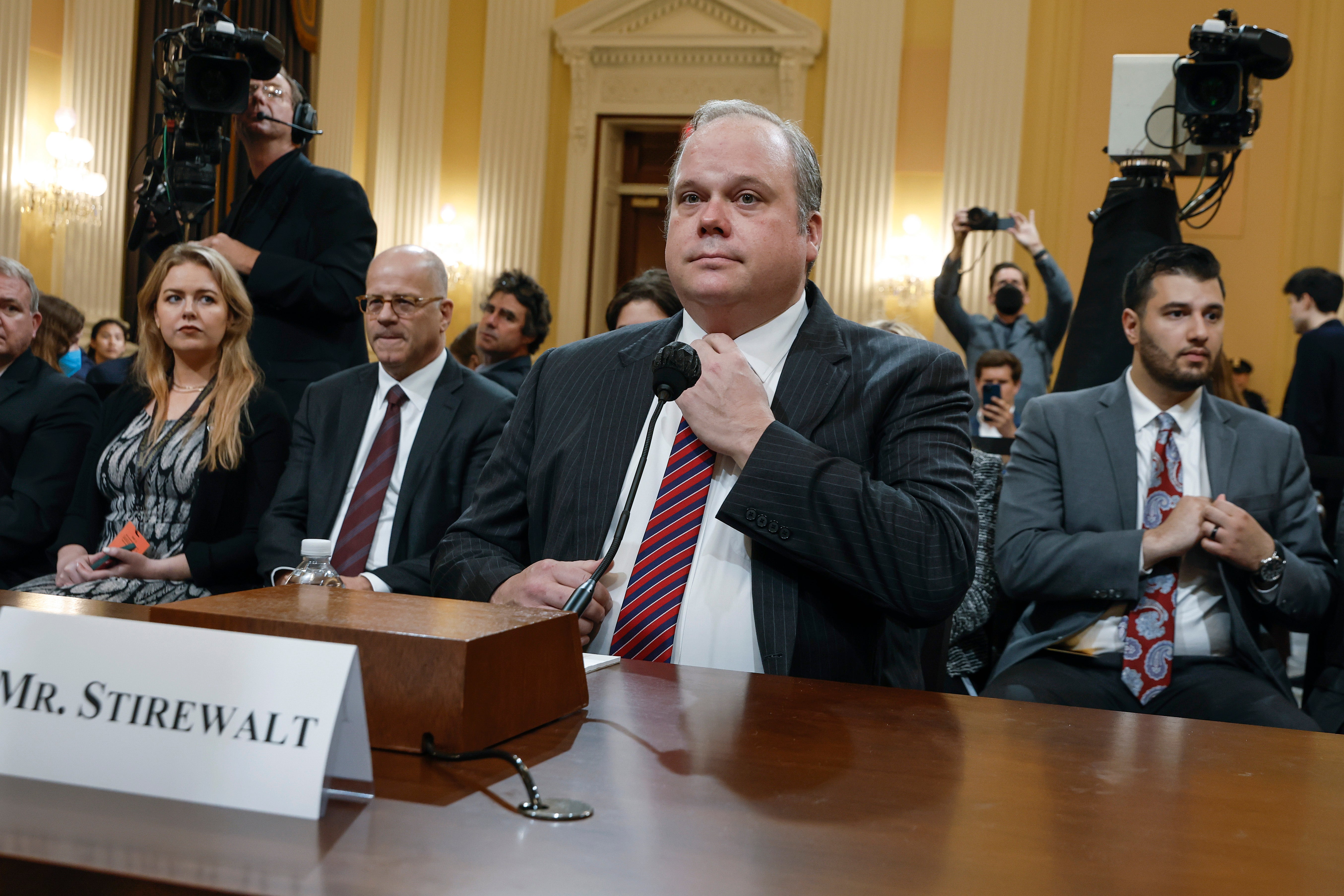
The former political editor of Fox News, Chris Stirewalt, had spent 11 years at the company when he was “canned” in January 2021 after having overseen the network’s decision desk when it became the first to call Arizona for Joe Biden in the 2020 election.
Fox claimed that he was removed because of restructuring alongside other journalists from the news division that had been at the network for a long time.
But Mr Stirewalt outlines what he believes was the real cause of his removal in his new book Broken News: Why the Media Rage Machine Divides America and How to Fight Back.
In an excerpt obtained by The New York Times, Mr Stirewalt writes that “I got canned after very vocal and very online viewers — including the then-president of the United States — became furious when our Decision Desk was the first to project that Joe Biden would win the former G.O.P. stronghold of Arizona in 2020”.
The call was made at 11.20pm on election night, far ahead of the other news networks. The call angered then-President Donald Trump and complicated his attempts to falsely say that he had won the election. He fruitlessly ordered his staff to make Fox retract the Arizona call.
The data analysts at the Fox News Decision Desk stood behind their decision and they were vindicated by the end results. The network’s ratings dipped as Mr Trump told his supporters to start watching other networks.
“Chris Stirewalt’s quest for relevance knows no bounds,” a spokesperson for Fox News told The Times. The network rejected the notion that his dismissal was connected to the Arizona decision, noting that Decision Desk chief Arnon Mishkin would be present for the midterms.

Those leaving Fox News rarely write tell-alls on the network because of confidentiality agreements or enduring loyalty. But Mr Stirewalt’s criticism of his former employer is searing as he argues that Fox has been one of the leaders in making US democracy more unpleasant as well as radicalising conservatives.
He accuses the networks of stirring up “black-helicopter-level paranoia and hatred”.
Mr Stirewalt outlines how he saw the network give its viewers more and more of what they wanted to be told during his 11 years there. This kind of output became even worse when Mr Trump was in the White House, according to Mr Stirewalt.
He writes that this led to the furious reaction to the Arizona call.
“Even in the four years since the previous presidential election, Fox viewers had become even more accustomed to flattery and less willing to hear news that challenged their expectations,” Mr Stirewalt writes. “Me serving up green beans to viewers who had been spoon-fed ice cream sundaes for years came as a terrible shock to their systems.”
“Amid the geyser of anger in the wake of the Arizona call, Senator Kevin Cramer, Republican of North Dakota, called for my firing and accused me of a ‘cover-up.’ Covering up what, exactly? We didn’t have any ballots to count and we didn’t have any electoral votes to award,” Mr Stirewalt adds.

“Had viewers been given a more accurate understanding of the race over time, Trump’s loss would have been seen as a likely outcome,” he notes. “Instead of understanding his narrow win in 2016 as the shocking upset that it was, viewers were told to assume that polls don’t apply (unless they were good for Trump) and that forecasters like me were going to be wrong again.”
Mr Stirewalt criticises several people by name in his book, saving particular ire for primetime host Tucker Carlson.
“Carlson is rich and famous,” he writes. “Yet he regularly rails about the ‘big, legacy media outlets.’ Guests denounce the ‘corporate media’ on his show and Fox’s C.E.O. calls Carlson ‘brave’ for discussing controversial topics. Yet somehow, nobody even giggles.”
“It does not take any kind of journalistic courage to pump out night after night exactly what your audience wants to hear,” he adds.
Mr Stirewalt writes that the right-wing diet being served up to the network’s viewers isn’t about electing more Republicans, but rather about making more and more money.
He writes that hosts such as Sean Hannity, and contributors like Dick Morris, the former aide to Democratic President Bill Clinton, pushed false claims to their viewers about how well Republicans were doing in their races in an effort to boost Fox’s ratings.
“They wanted it to be true because they wanted Republicans to win, but keeping viewers keyed up about the epochal victory close at hand was an appealing incentive to exaggerate the G.O.P. chances. It was good for them to raise expectations, but it wasn’t good for the party they were rooting for,” Mr Stirewalt writes.
“Despite all that Fox’s detractors said about the network being a mouthpiece for the Republican Party, the two organizations had fundamentally different aims,” he adds.
“I make no pretense that I have always been on the side of the angels,” he notes. “But I have definitely paid my dues.”







